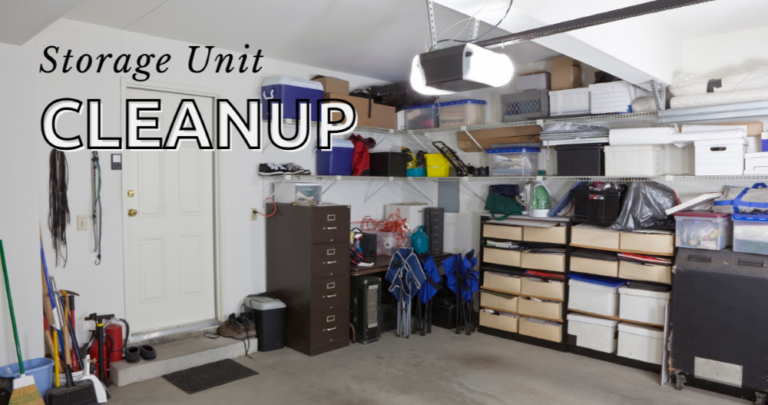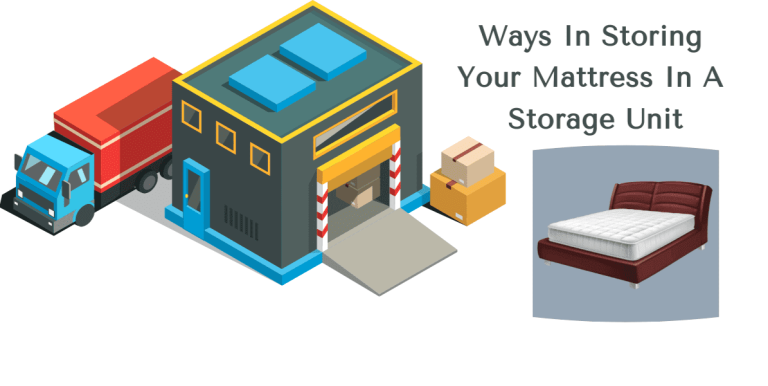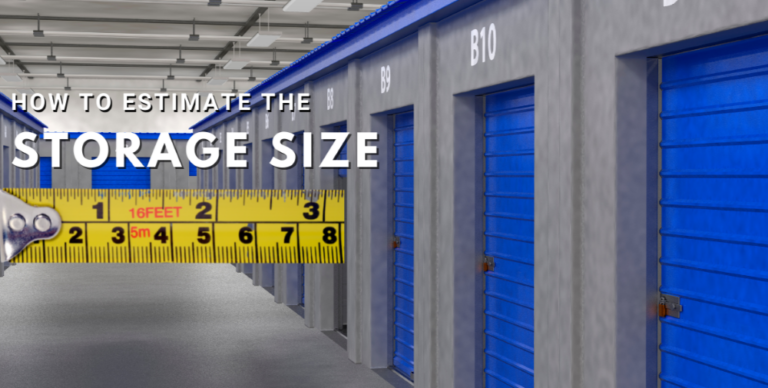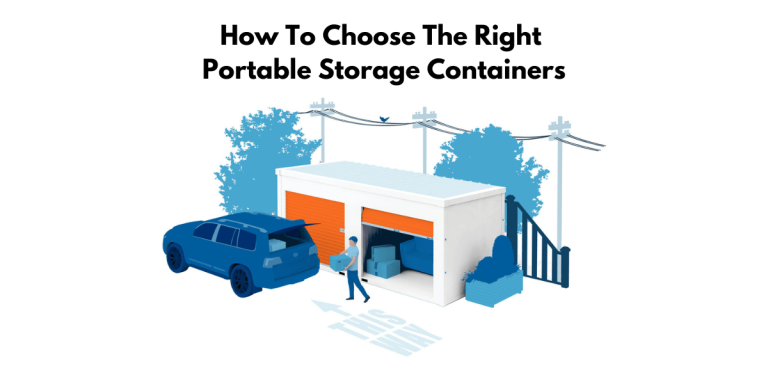Storage for Vehicles: How to Prepare for Car Storage
How to Store a Car in a Storage Unit
Self-storage units provide a convenient and affordable way to store your car when you’re not using it. Whether you’re going on an extended trip or you’ve run out of room at home, there are various options for storing your vehicle at a self-storage facility.
Self-storage is an important service for people who need to store extra belongings, but it can also be used to store a car. There are many different types of self-storage businesses, and each one offers its own set of services. For example, some businesses provide outdoor parking, while others offer covered spaces or fully enclosed units that are large enough to accommodate automobiles. Here are some tips on how to store your car in a storage unit:
Types of storage for cars
There are two types of storage for cars- indoor and outdoor. Indoor storage is typically found in a garage or warehouse, while outdoor storage can be either at a facility or on private property. When it comes to storing a car outdoors, there are a few things to consider- the level of convenience and protection the storage offers. For example, if you’re looking for convenience, an outdoor storage unit close to your home might be a good option. However, if you’re looking for maximum protection from the elements, an off-site facility might be better.
Covered storage is more affordable and typically offers more convenience, as it protects the car from weather conditions. However, noise, smoke, and smells associated with car maintenance can impact other renters in the same facility.
There are a few different types of storage for cars. One is to store the car at your house. If you need to work on the car, do so before bringing it to the storage facility. This will help you avoid having to move the car multiple times. You can also store your car in a self-storage unit, but make sure you have enough space.
Indoor car storage
Selfs storage is a great option for those who need to store their vehicle but don’t have the space for it. There are many different types of car self-storage, but indoor drive-up units are the most popular because they are convenient and accessible. The unit sizes vary depending on the location, but most offer various options to choose from.
Vehicles of all shapes and sizes can be stored indoors at a self-storage facility. Whether you have a compact car, a large pickup truck, or a commercial cargo van, unit size will likely accommodate your needs. Most storage facilities have units 10×15 feet or larger, so you will have plenty of space to store your vehicle.
There are two storage units for cars: drive-up access and indoor self-storage. Drive-up access is perfect for long-term self-storage, as you can easily load and unload your car without worrying about getting it through a small door. Indoor self-storage is the best option for smaller vehicles, as they will be less likely to be damaged in an outdoor unit.
Indoor car storage is the most expensive option for storing your car. The main reason for this is the cost of the space and the limited size of many indoor storage units. RV owners often don’t store their vehicles indoors because of many indoor storage units’ high cost and size limitations. Additionally, small cars are not ideal for indoor storage because they take up more space than a larger vehicle.
Outdoor car storage
Outdoor car storage is a great option for people who live in areas with amazing weather. The benefits of outdoor car storage are that your car will be in the sun and have easy access to it. In addition, outdoor car storage can be a cheap option if you live in an area prone to violent weather.
Outdoor storage is a great option for people who want to keep their car in a safe and affordable place. Many outdoor storage facilities have canopies, which protect the car from the sun and rain. The downside is that these spots are typically uncovered, so they are the cheapest option.
Outdoor storage is a great option for those who have a lot of space and want to keep their cars, trucks, RVs, and work trucks protected from the rain, dust, dirt, and hail. The spaces are usually big enough to accommodate all types of vehicles, and they come with added security features like cameras and gated access.
Outdoor car storage is often the least expensive option for storing a car. The parking lot is typically fenced-in and behind an access-controlled gate, making it a safe and secure place to store a car.

Covered car storage
Covered car storage is a great option for people who need to store their cars indoors and outdoor. Outdoor car storage locations have canopies that protect your car from the sun, rain, and other harsh weather conditions.
When it comes time to store your car, you have a few different options. You can choose an outdoor storage option that is open to the elements or go with a covered storage option. Covered storage will protect your car from the rain, snow, and wind, but it will be more expensive. So make sure to choose the right storage option for your needs.
There are three types of car storage options typically available: outdoor storage covered outdoor storage and indoor storage. Outdoor storage is the cheapest option, but it is also the most exposed to the elements. Covered outdoor storage protects your car from the rain and sun, but it can be more expensive than outdoor storage. Finally, indoor storage is the most expensive option, but it offers the best protection for your car.
Climate-controlled storage unit
Climate-controlled storage units can range in price from $45 to $450 per month, depending on the size of the unit and the location. Climate control maintains a consistent temperature and humidity level, protecting your belongings from extreme weather conditions. Additionally, many storage facilities offer drive-up access, which gives you extra storage space to park your car or store large items.
When looking for a storage unit to store your car, there are a few things you’ll want to keep in mind. First, the climate-controlled storage units will protect your car from the weather and keep it in good condition. Additionally, security is important for any storage unit, and car storage units usually have gated access and video surveillance.
When it comes to storing a car, there are a few things to consider. The first and most important is the climate. A storage unit that is not climate-controlled can be damaging to a car in the summertime due to the heat and in the wintertime due to the cold. For this reason, it is important to find a storage unit that offers climate control. This will protect the car from the elements and keep it in good condition for when you need it again.
Climate-controlled storage may be necessary if you want to preserve your precious antique car. Storage units without air or heating are fine for cars of all types, but cooling is especially important for high-end sports cars.
Important car storage considerations
When it comes to storing a car, there are a few things you need to take into consideration. First and foremost, you need to make sure your car is in good condition before putting it into storage. This means properly cleaning and waxing the exterior, checking fluid levels, and ensuring that all tires are properly inflated. Additionally, you should take some time to prepare your car’s interior for storage. This includes removing any personal belongings from the vehicle and turning off the engine. If you follow these tips, your car will be in good condition when you pull it out of storage again.
Security
Security is a top priority for any business, especially for businesses that store vehicles or cars. This can be achieved with electronic gate access, video surveillance, and on-site managers. Having these security features in place will help to ensure the safety of your property and employees.
When looking for a storage facility, it’s important to ask about security measures. This includes questions about the facility’s location, access, and video monitoring. HD video monitors are a great way to keep an eye on your car while in storage.
It’s important to store extra cars in a secure place, especially if they are high-value vehicles. Parking a car on the street for an extended period can lead to fines and other penalties.
Access hours
The extended access hours are the hours of operation offered in addition to the regular business hours. This includes removing your car from the lot and cleaning and repairing it.
On the other hand, if you need to work on your car often or want to have it available during certain times of the day, choose a storage facility that has access hours that work with your schedule. Many facilities offer extended access hours to get in and do what you need to without worrying about time constraints.
Fill the tank with premium gasoline with high-octane
Doing so will help avoid condensation. With the tank full of gas, the likelihood of moisture forming in either the lines or the tank itself is greatly minimized.
Local weather
Storage units can be susceptible to harsh weather conditions, such as high winds and heavy rain. While the structure of the storage unit may be able to withstand some elements, items within the unit could be damaged if proper precautions are not taken.
When looking for a storage unit, it is important to consider the weather in that location. For example, if you are in a warm climate, you will want an air-conditioned storage unit. On the other hand, if you are in a cold climate, you will want a heated storage unit.
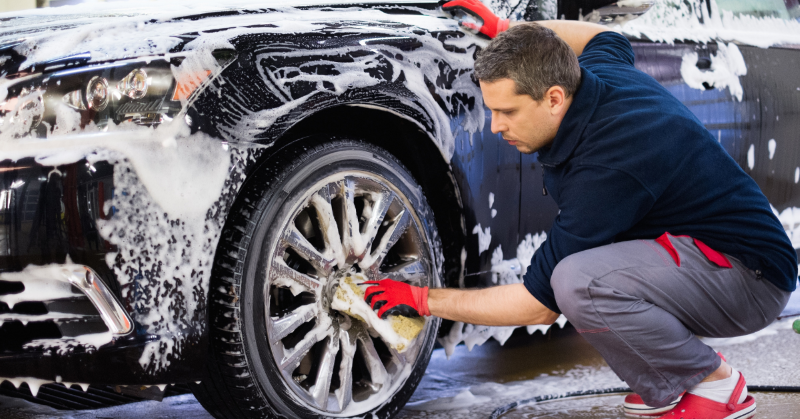
What size storage unit do you need for a car?
When it comes to storing a car in a storage unit, you have a few different options. The most common option is to store the car in an enclosed storage unit. This means that your car will be protected from the elements and will not be exposed to UV rays, which can damage the paint over time. The size of the storage unit you need will depend on the size of your vehicle. If you are looking for a small, enclosed storage unit, you can choose between a small, medium, or large unit. If you need more space, then you can choose an extra-large unit.
Storage units are not just for storing household items. You can also store a car in a storage unit. The size of the storage unit will depend on the type of car you have. For example, if you have a sedan, you can use a 10’x20’ or 10’x25’ drive-up/outdoor storage unit. However, if you have a larger vehicle like an SUV or pickup truck, you need a 10’x30’ storage unit. Remember, cars need a place to stay, and storage units provide that space.
When it comes to storing a car, there are a few things to consider. The first is size- you will need a storage unit or parking space that is large enough to fit your car. Second, you will need to prepare the unit or space before parking the car. This means clearing out any extra items and making sure the area is level and dry.
Vehicles take up a lot of space, so choosing the right storage unit size is important. The best way to determine the size is to measure the car and multiply it by two. This will give you the approximate square footage you need. If you are unsure what kind of storage unit to get, start with a 10×10 or 10×20 space.
Storage units 10×15, 10×20, 10×25 & 30
Storage units can come in various shapes and sizes, and 10×15 storage units are a common option for those who need compact storage. They’re great for smaller cars or items that don’t take too much space. However, it’s important to measure the dimensions of your car or belongings before selecting a unit, as not all 10×15 units are created equal.
10×25 and 10×30 self-storage units are popular among business owners who need to store a commercial vehicle. The units provide enough space to park a car or small truck, and they’re typically tall enough to accommodate most standard-sized vans.
How to prepare your car for storage
There are a few things to remember when storing a car in a storage unit. First and foremost, it is illegal to store a car without current plates. Additionally, your registration and insurance need to be up-to-date. Finally, you will also want to ensure that the car is clean and free of any debris before putting it into storage.
Preparing a car for storage is not as simple as putting it in a storage unit and forgetting about it. A few things need to be done beforehand to make sure the car is safe and will remain in good condition while in storage. For starters, the owner should talk to their insurance agent about changing their coverage for long-term storage. Additionally, they can follow these tips:
Basic maintenance
You can do some basic things before storing your vehicle to protect it and help maintain its longevity. For example, adding high octane gasoline helps prevent condensation, fertilizer helps increase fuel longevity by up to 12 months, and removing the battery prevents acid damage.
In addition, there are a few basic maintenance tasks you should do before storing your car. The most important is to check the battery. If it is not in good condition, it will not store well during the winter. You should also change or top off the oil, brake fluid, and antifreeze.
Protect the finish
When you’re finished washing and waxing your car, don’t forget to clean the door jambs and the areas under the hood. Also, make sure to vacuum and dust the interior and apply a conditioner to any vinyl surfaces. If you take these precautions, foul odors can be deterred from developing.
To protect your car’s finish when you’re not driving it, steam cleans it a few days before storing. Also, make sure to vacuum up all food crumbs and ensure the interior is completely dry before storing. If you need to store your car in a humid environment, consider using a moisture absorber to keep moisture levels low and prevent mold and mildew from forming.
Fill your gas tank
If you’re looking to store your car for an extended period, it’s important to take preventative measures to protect your vehicle. One way to do this is by adding a fuel stabilizer to your gas tank, which will help prevent rust. Additionally, you can add premium gas instead of regular gas to avoid water build-up. And finally, if you have a full tank of gas when you put your car in storage, it will help protect the fuel lines and engine from corrosion.
Change oil
When you store your car for an extended time, changing the oil is important. This will remove any contaminants built up over time and could damage the engine if left unchecked. You should also replace any fluids that might have depleted, such as antifreeze, brake fluid, and coolant.
Disconnect battery
There are a few options on how to take care of your battery in cold weather. You can remove the battery and store it in a warm place, disconnect the negative battery cable, or connect the battery to a trickle charger or a battery tender. Of course, the best option for extreme cold is to remove the battery altogether.
To disconnect the battery, you can connect the cables through the underside of the engine bay. If you store the car over winter, it will lose its charge if left unused for an extended period. To make sure your car is ready for storage, use a trickle charger and slowly charge overnight. To circulate the tires, keeping them from rotting.
Flat spots on tires
Flat spots on your tires can be a real annoyance and can even lead to decreased performance and dangerous driving conditions. Fortunately, there are ways to prevent them from forming in the first place. Driving your car periodically is one way to keep the tires around, using products like tire saver ramps. If you’re not going to drive the car for an extended time- such as a month or more- it’s best to jack the car up and put it on blocks or jack stands. This will help keep the tires from developing flat spots. The reason for jacking up the car is twofold: first, it takes the vehicle’s weight off the tires, preventing them from flattening; secondly, it allows air to circulate through the tires, which helps prevent moisture from building up inside of them.
Repel pests
There are a few preventative pest control measures that you can take to keep your belongings safe from pests. One uses dryer sheets; the scent will deter pests without the harsh chemical smell of other deterrents like mothballs. Another is using cedar chips, which have a natural repelling scent. Finally, make sure to take steps to protect your car before storage. This includes cleaning it out and removing anything that could attract pests, like food or trash.
To store your car for an extended period, you will need to take precautions. Firstly, vinyl can dry out if it is not protected, so cover all surfaces. Secondly, rodents and pests can be deterred with some preparation. Finally, give the exterior a good wipe down before putting it away.
- How to Get Rid of the Clutter: 15 benefits of decluttering services - April 13, 2023
- Self Storage Interesting Facts: Self-storage facility myths you should know - June 25, 2022
- Holiday Decorations: 15 tips for seasonal decor storage - January 17, 2022


